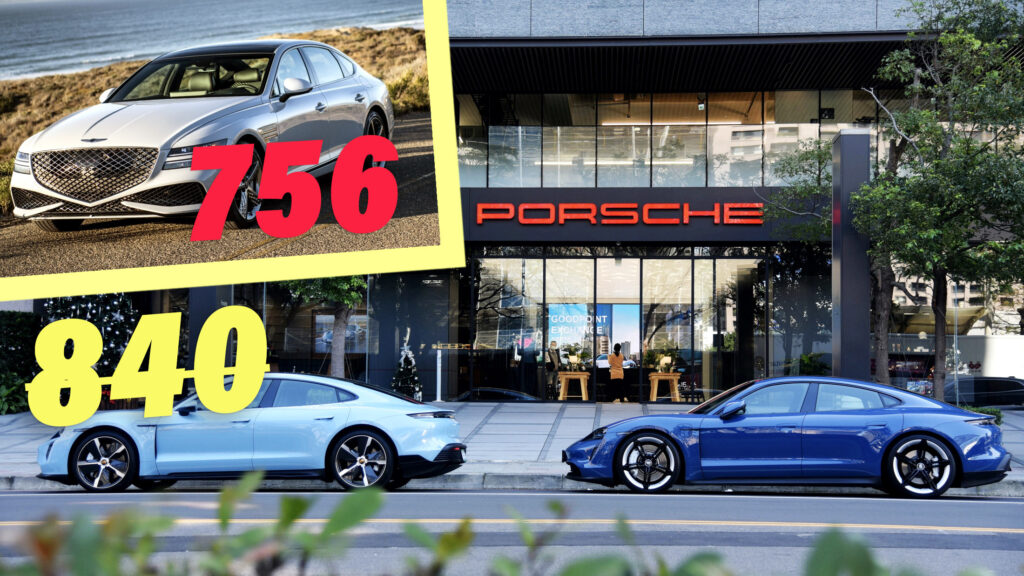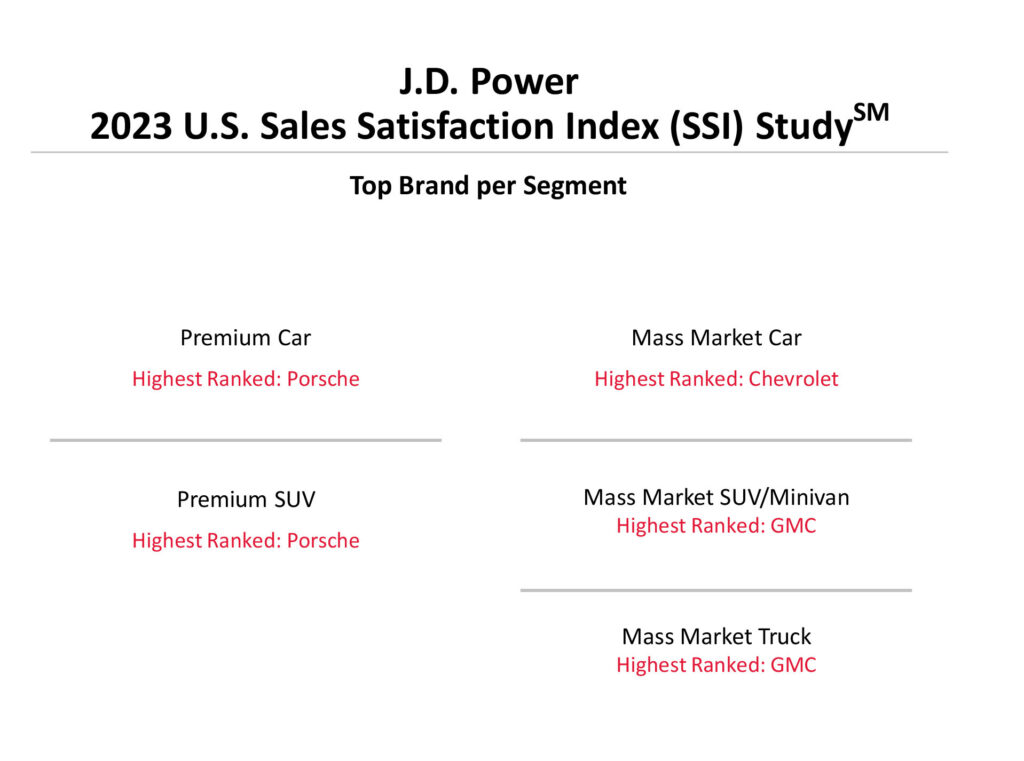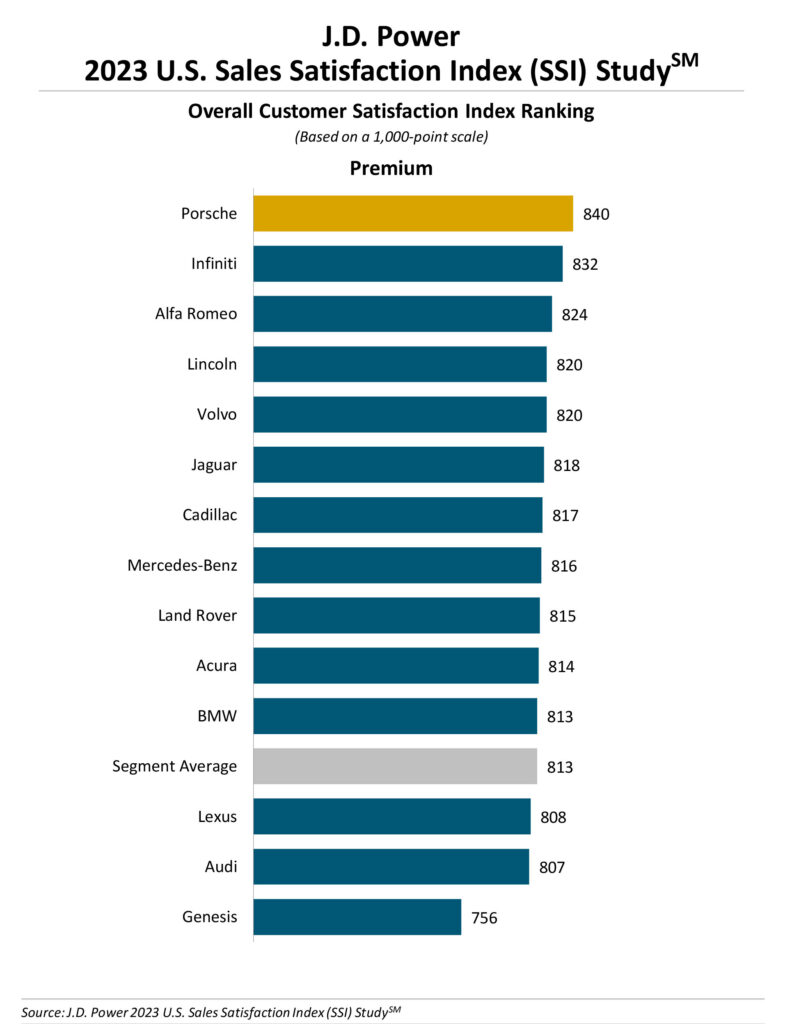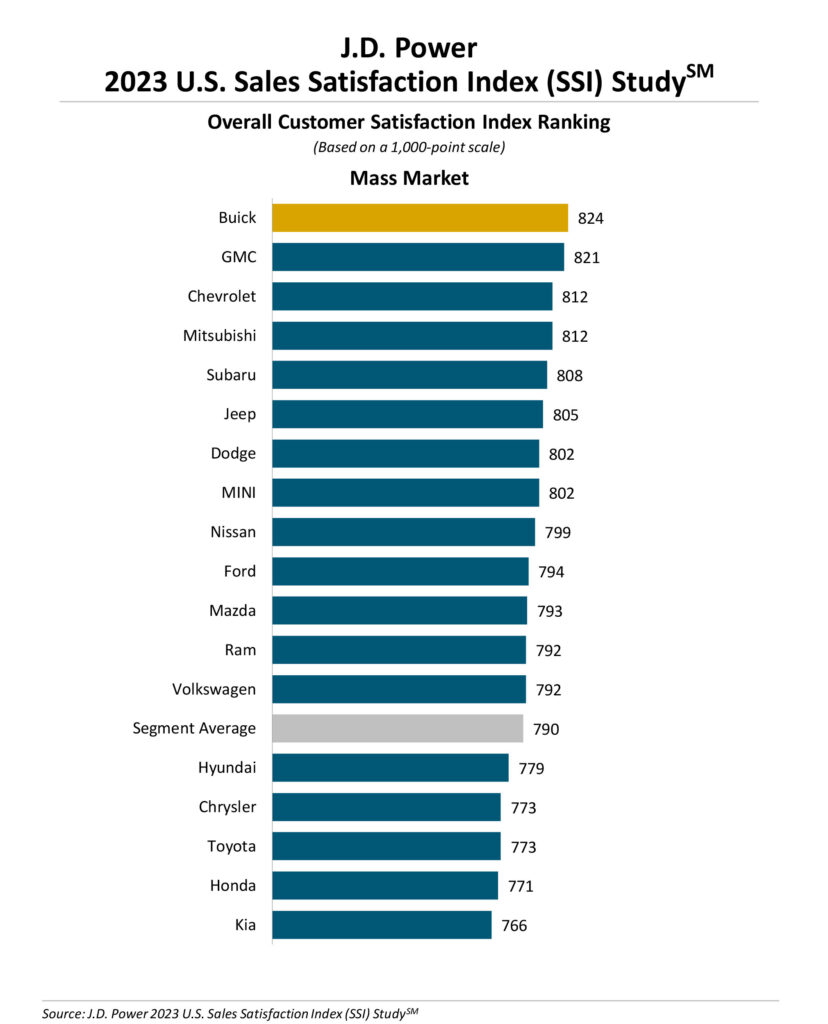J.D. Power finds that the difficulties of pandemic shopping are in the rearview mirror, and buyers are more satisfied. Now, if only dealers were better at selling EVs
November 8, 2023 at 16:04
 –>
–> 
–>
As you are undoubtedly aware, vehicle prices went a little nuts during the pandemic. But now that automakers are able to produce enough to catch up with demand, prices are starting to normalize, which is leading to much happier new vehicle shoppers.
Price and supply are the biggest factors leading to an overall increase in the mood of customers in the 2023 U.S. Sales Satisfaction Index study, according to J.D. Power. Last year, the average satisfaction rating across the industry was 786 out of 1,000. This year, the number has increased to 793.
“Buyers are more satisfied with the inventory choices they now see in dealerships across the country—more than in the past three years,” said Chris Sutton, VP of automotive retail at J.D. Power. “Increased inventory also means fewer buyers are paying more than the manufacturer’s suggested retail price (MSRP) for their new vehicle.”
advertisement scroll to continue
Read: Forget EVs, Its Hybrids That Are Really Switching People On To Electric Power
Although dealers are able to charge over MSRP on fewer vehicles, prices aren’t yet back to where they were before the pandemic, meaning that customer satisfaction is not back to pre-pandemic levels either.
J.D. Power reports that buyers shopping for a mass market vehicle ranked the fairness of the price they paid as an 8.04 out of 10 in 2023, versus 8.14 in 2020. Meanwhile, shoppers in the premium segment rated the fairness at 8.18 in 2023, as compared to 8.42 in 2020.
Rankings

The happiest customers industry-wide were Porsche buyers. The German brand received a satisfaction rating of 840, while Infiniti ranked second in the premium segment with 832, and Alfa Romeo ranked third with 824. In the mass market segment, Buick had the most satisfied customers, for the second year in a row. Its customers gave it a score of 824, while GMC and Chevrolet proved that GM is doing it right with scores of 821 and 812, respectively.
On the flip side, the least satisfied customers in the premium segment, by a wide margin, were Genesis buyers (756). In the mainstream segment, Kia (766) was at the bottom, followed closely by Honda (771), Toyota (773), and Chrysler (773).
The Electric Knowledge Gap
Elsewhere, the study found that people who bought internal combustion vehicles were much more satisfied than those bought electric vehicles. In the mass market segment, ICE buyers rated their experience as deserving 848 points out of 1,000, whereas EV buyer rated their experience at just 790. The disparity was smaller in the premium segment (ICE 866, EV 831), but the overall trend was the same.
In addition to the high prices of EVs, the buying experience for EV owners is generally as less satisfying. The novelty of the technology means that many dealer employees are still learning the ins and outs, and customers want more help installing chargers, learning how to charge, and understanding the maintenance schedule of their new vehicles.
“Buyers of ICE vehicles don’t need to be taught how to put fuel in the gas tank,” Sutton said. “But salespeople need to show EV buyers how to charge their vehicles at home and what’s involved in using a public charging station.”




